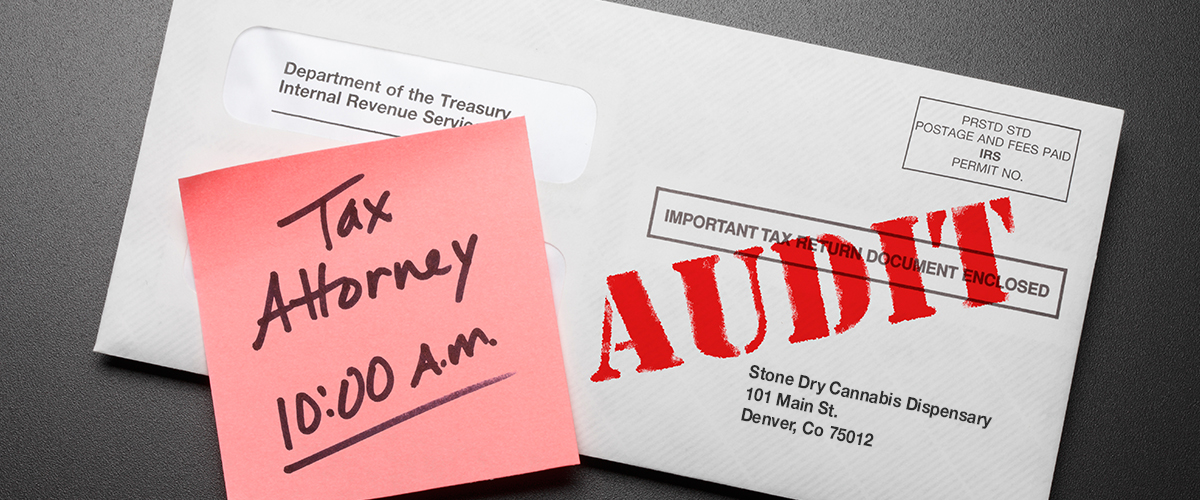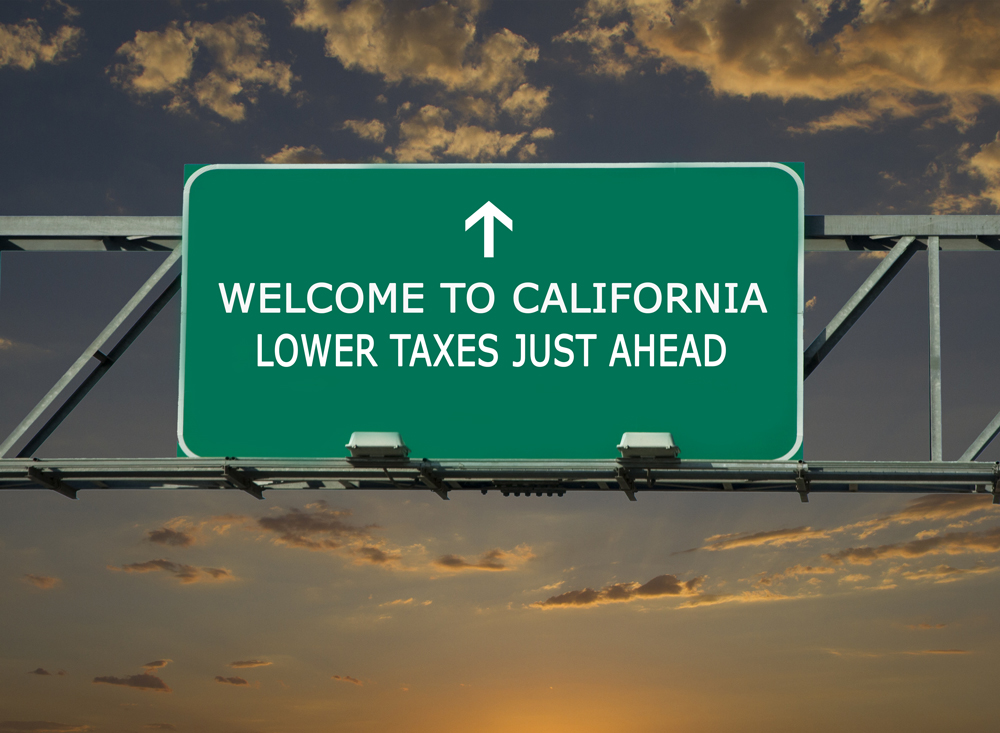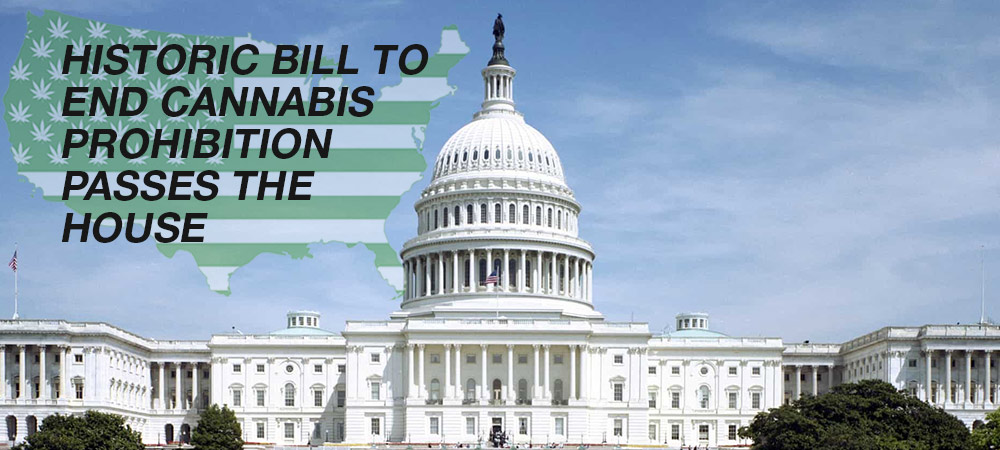IRS Targeting Cannabis Businesses With “280E Audits”
We previously reported in our blog that the Trump Administration organized a committee of federal agencies from across the government to combat public support for marijuana and cast state legalization measures in a negative light while attempting to portray the drug as a national threat.
The IRS appears to be following the agenda of the Trump Administration when it comes to Cannabis and has formed special audit groups that are tasked with conducting cannabis tax audits on medical and recreational cannabis businesses. Our office is currently representing cannabis businesses under audit and in U.S. Tax Court and we have learned from IRS agents that they have been given a mandate to audit just about every licensed cannabis operator in their districts.
The IRS recognizes that cannabis businesses deal in cash which makes it harder to substantiate deductions and that the Internal Revenue Code prohibits cannabis businesses from deducting operating expenses. These two factors could lead to an avalanche of audits that could cost cannabis businesses millions in unpaid taxes and penalties.
I.R.C. §280E
The Federal Controlled Substances Act (“CSA”) 21 U.S.C. § 812 classifies marijuana as a Schedule 1 substance with a high potential for abuse, no currently accepted medical use in treatment, and lack of accepted safety for use under medical supervision.
Generally, businesses can deduct ordinary and necessary business expenses under I.R.C. §162. This includes wages, rent, supplies, etc. However, in 1982 Congress added I.R.C. §280E. Under I.R.C. §280E, taxpayers cannot deduct any amount for a trade or business where the trade or business consists of trafficking in controlled substances…which is prohibited by Federal law. Cannabis, including medical marijuana, is a controlled substance. What this means is that dispensaries and other businesses trafficking in cannabis have to report all of their income and cannot deduct rent, wages, and other expenses, making their marginal tax rate substantially higher than most other businesses.
IRS Guidance On Cannabis.
The IRS issued a memo to provide guidance to its agents on conducting audits of cannabis businesses addressing whether an IRS agent can require a taxpayer trafficking in a Schedule 1 controlled substance to change its tax accounting to conform to I.R.C. §280E.
Not surprisingly that the IRS ruled that IRS agents have the authority to change a cannabis business’ method of accounting so that pursuant to I.R.C. §280E costs which should not be included in inventory are not included in Costs Of Goods Sold (“COGS”) and remain non-deductible for income tax purposes.
Cannabis Tax Audits & Litigation.
It is no surprise that cannabis businesses are proliferating as more States legalize cannabis and make available licenses to grow, manufacture, distribute and sell cannabis. The IRS recognizes this and it is making these cannabis businesses face Federal income tax audits under an “audit technique guide” that has been developed by IRS officials using information from Colorado’s seed-to-sale tracking system. This guide is now being used nationwide with IRC §280E being at the forefront of all IRS cannabis tax audits.
Proving deductions to the IRS is a two-step process:
• First, you must substantiate that you actually paid the expense you are claiming.
• Second, you must prove that an expense is actually tax deductible.
Step One: Incurred And Paid The Expense.
For example, if you claim a $5,000 purchase expense from a cannabis distributor, offering a copy of a bill or an invoice from the distributor (if one is even provided) is not enough. It only proves that you owe the money, not that you actually made good on paying the bill. The IRS accepts canceled checks, bank statements and credit card statements as proof of payment. But when such bills are paid in cash as it typical in a cannabis business, you would not have any of these supporting documents but the IRS may accept the equivalent in electronic form.
Step Two: Deductibility Of The Expense.
Next you must prove that an expense is actually tax deductible. For a cannabis businesses this is challenging because of the I.R.C. §280E limitation. Recall that under I.R.C. §280E, taxpayers cannot deduct any amount for a trade or business where the trade or business consists of trafficking in controlled substances…which is prohibited by Federal law. What this means is that dispensaries and other businesses trafficking in cannabis have to report all of their income and cannot deduct rent, wages, and other expenses, making their marginal tax rate substantially higher than most other businesses.
A cannabis business can still deduct its Cost Of Goods Sold (“COGS”). Cost of goods sold are the direct costs attributable to the production of goods. For a cannabis reseller this includes the cost of cannabis itself and transportation used in acquiring cannabis. To the extent greater costs of doing business can be legitimately included in COGS that will that result in lower taxable income. You can be sure the IRS agents in audits will be looking closely at what is included in COGS. Working with a cannabis tax attorney can ensure that you receive the proper treatment of COGS versus ordinary and necessary expenses resulting in the lowest possible income tax liability.
In addition to IRS audits, state cannabis audits are also complex and thorough and generally include all taxes specific and nonspecific to the cannabis business. Potentially at risk is the cannabis license that enables the business to operate. State audits will focus on records regarding sales and use tax, excise taxes, and seed-to-sale tracking records.
Now if your cannabis IRS tax audit is not resolved, the results may be challenged and litigated in the U.S. Tax Court or Federal District Court. The U.S. Tax Court has jurisdiction to hear disputes over federal income taxes before final assessment and collections while the Federal District Court generally requires taxpayers to first pay the liability then seek repayment through a refund request.
What Should You Do?
Considering the tax risks of cannabis you need to protect yourself and your investment. Level the playing field and gain the upper hand by engaging the cannabis tax attorneys at the Law Offices Of Jeffrey B. Kahn, P.C. located in Orange County (Irvine), the Inland Empire (Ontario and Palm Springs) and other California locations. We can come up with tax solutions and strategies and protect you and your business and to maximize your net profits. And if you are involved in crypto currency, check out what a Bitcoin Attorney can do for you.











 Follow
Follow Follow
Follow